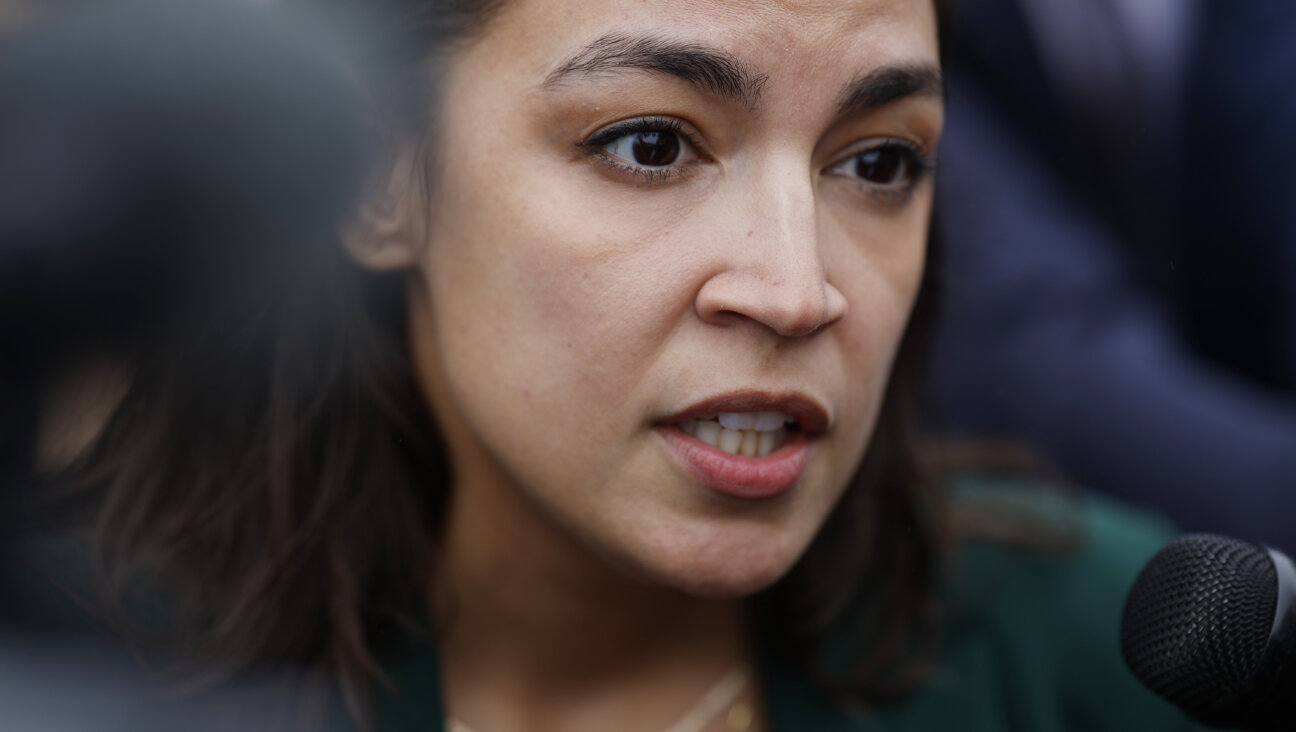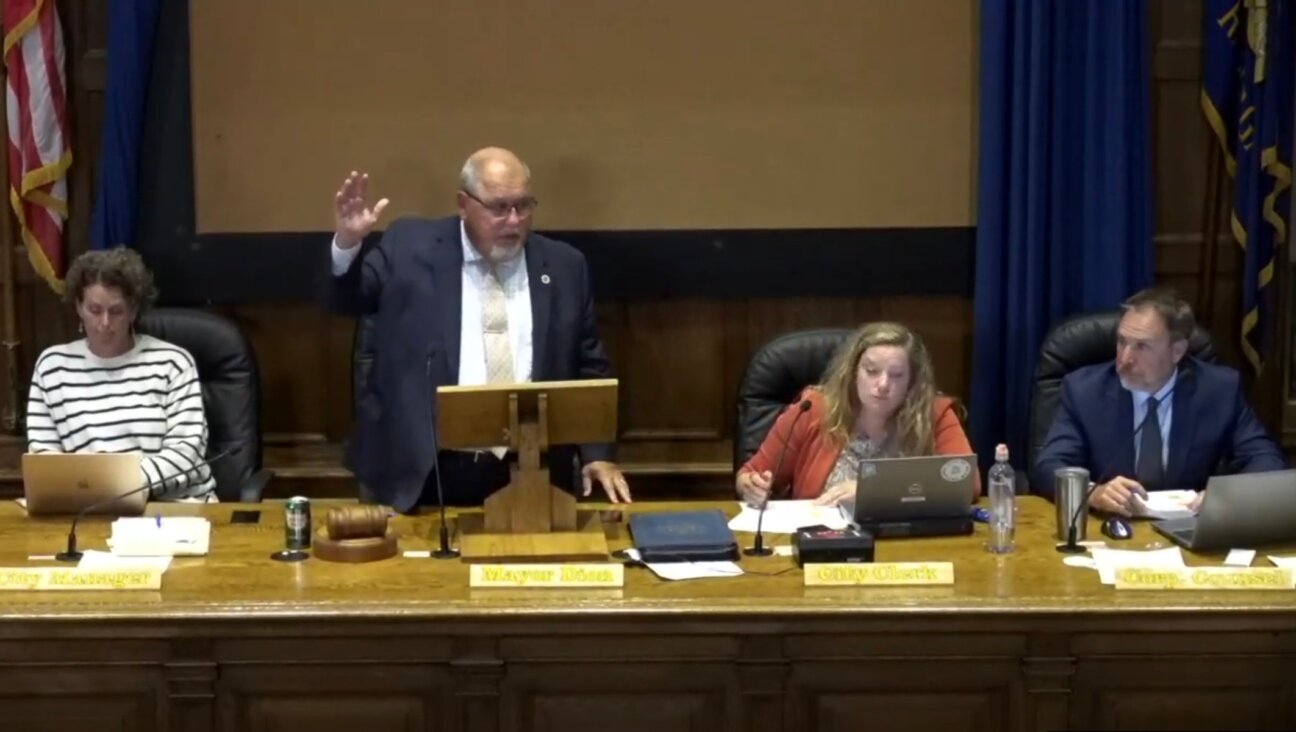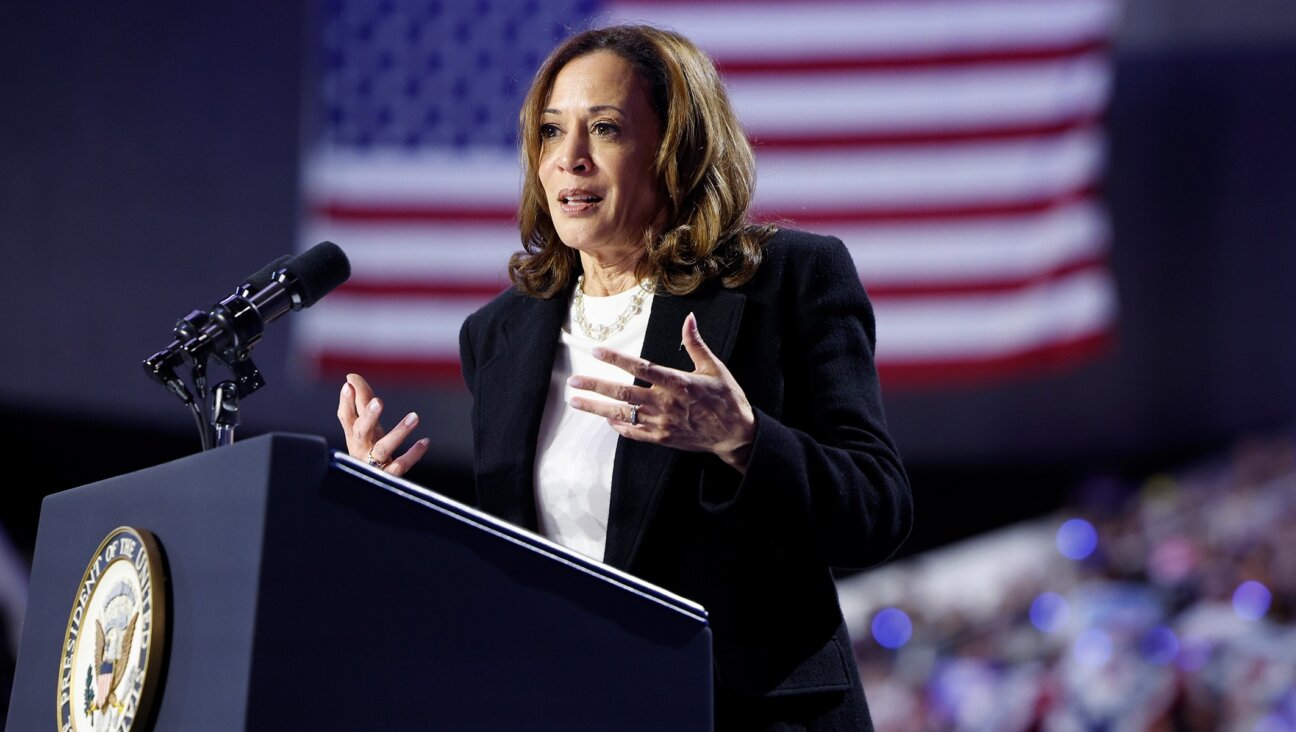Tensions flare at L.A. anti-annexation rally

Pro-Palestinian and pro-Israel protesters face off in front of the Israeli Consulate in Los Angeles at a July 1 rally opposing Israeli annexation of the West Bank. Image by Louis Keene
With the Covid-19 pandemic surging in Southern California and the state teetering on the verge of another lockdown, scores of protestors formed a car caravan around the Israeli consulate in Los Angeles to protest Israel’s annexation of the West Bank planned for that day.
The protest started on the ground early Wednesday morning, July 1, with about 150 pro-Palestinian protestors facing off against at least 50 pro-annexation counterprotest by supporters of Israel.
Anti-Israel organizers billed the protest as a “Day of Rage.” Word of it circulated widely in the Jewish community via WhatsApp in the days leading up to it.

Tensions flare at rally against annexation in front of the Israeli Consulate in Los Angeles July 1. Image by Louis Keene
Protesters hurled expletives and racist epithets in both directions, and at several points, protestors nearly came to blows.
Moe, who declined to give his last name for fear of retaliation, said he grew up in the West Bank city of Tulkarem. He said Israeli settlements in the West Bank had had already made life untenable for most Palestinians, and that Israel annexing Area C, which is currently under common control, would only make it worse.
“They can come into your place, arrest you whenever you want,” said Moe. “You’re not free. In all the area of Palestine, you’re not free. Their kids throw stones on civilians’ vehicles. So now imagine that situation in all of it.”

Due to the pandemic most protesters stayed in their cars at a rally against annexation in front of the Israeli Consulate in Los Angeles July 1. Image by louis keene
With tensions boiling over after about two hours of chanting, flag-waving, and near-confrontations, the police finally divided the two protests onto opposite corners.
Most, but not all protestors, were wearing masks.

A young man in an AEPi kipa confronts a pro-Palestine protester at anti-annexation rally July 1 in Los Angeles. Image by Louis Keene
On one corner stood about a hundred protestors chanting “Free! Free! Palestine!” and playing darbuka drums. On the other, someone was singing Hatikva into a megaphone. “Am Yisrael Chai!” the pro-Israel corner chanted back.
Naya Lekht, the director of education for Club Z, which teaches high school students Israel advocacy, was there to support Israel. She said neither the annexation nor the Area C settlements were a violation of international law.
“Had Israel wanted to annex Area A, I wouldn’t support it, because Arabs live there now,” she said. “This is not about emotions, or about anger. It’s about demography and understanding where people live.”
Lekht didn’t think the annexation would make it harder to achieve longer-term stability or peace in the Middle East. “Do we have a partner, is the question I have to throw back,” she said.
Talya Havivi was standing with the pro-Palestinian protestors, and said she was representing Jewish support for Palestinian life.
“Jews have a right to their land, but Palestinians do also,” she said. “My type of Zionism is Jews and Palestinians working together to create a land that works for both of them.”
A warning about the protest was circulated widely in Jewish community groups on WhatsApp on Monday and Tuesday, pulled from a Facebook post by Steve Kossover, a contractor who lives in Encino. The message advised Jewish business owners to board up their shops and beware unruly protestors. “Got ammo?” the message said.
Kossover said that the original message had been sent to him directly, and he had only reposted it to his public profile. It was shared widely, however, crediting his name at the bottom.
“Nobody showed up. It’s embarrassing,” said Kossover, who said he did not know enough about the annexation issue to have an opinion on it.
Kossover, a first-generation Israeli-American, said he thought that the protestors were not there for Palestinian rights, but from other movements like Black Lives Matter, the Council on American Islamic Relations, and Hamas.
“A lot of them are there for the right reasons, but a lot of them are sheep,” Kossover said.
Many of the signs in the protest could be considered inflammatory. “Fuck Israel,” read one.
Another held by several protestors accused Israel of ethnic cleansing. “From the river to the sea, Palestine will be free,” the protestors chanted, a term which is often understood as a call to cleanse Israel of Jewish life because it was contained in the 1988 Hamas charter. Hamas has since distanced itself from that charter, but remains hostile to Zionism.
“They come to our land, they cut our trees, sometimes they bring their dogs to attack farmers and their sheep,” said Moe. “Whenever they have a chance to make it harder for you to move, they do.”























